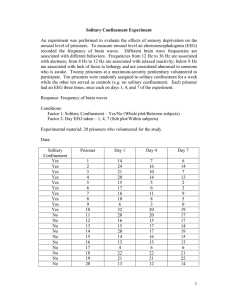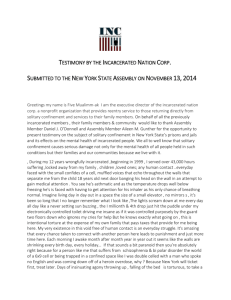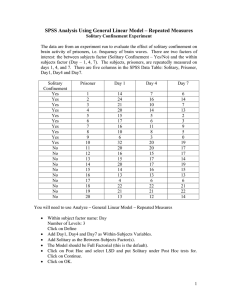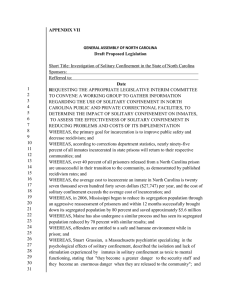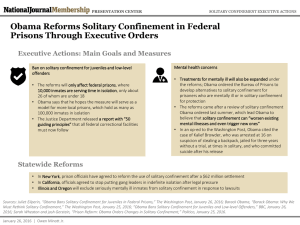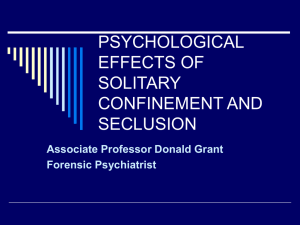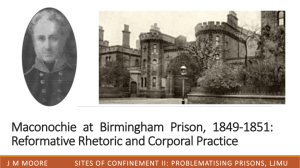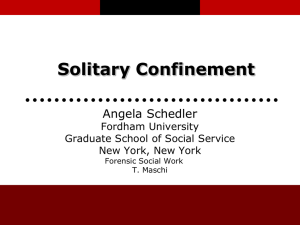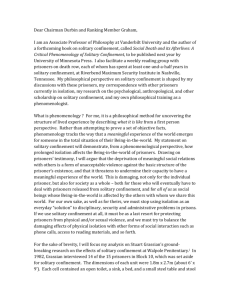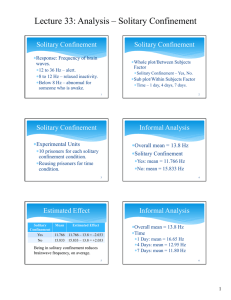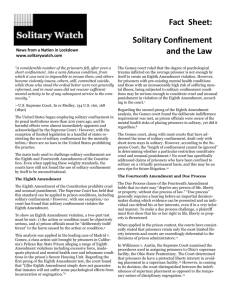Rabbis for Human Rights-North America
advertisement
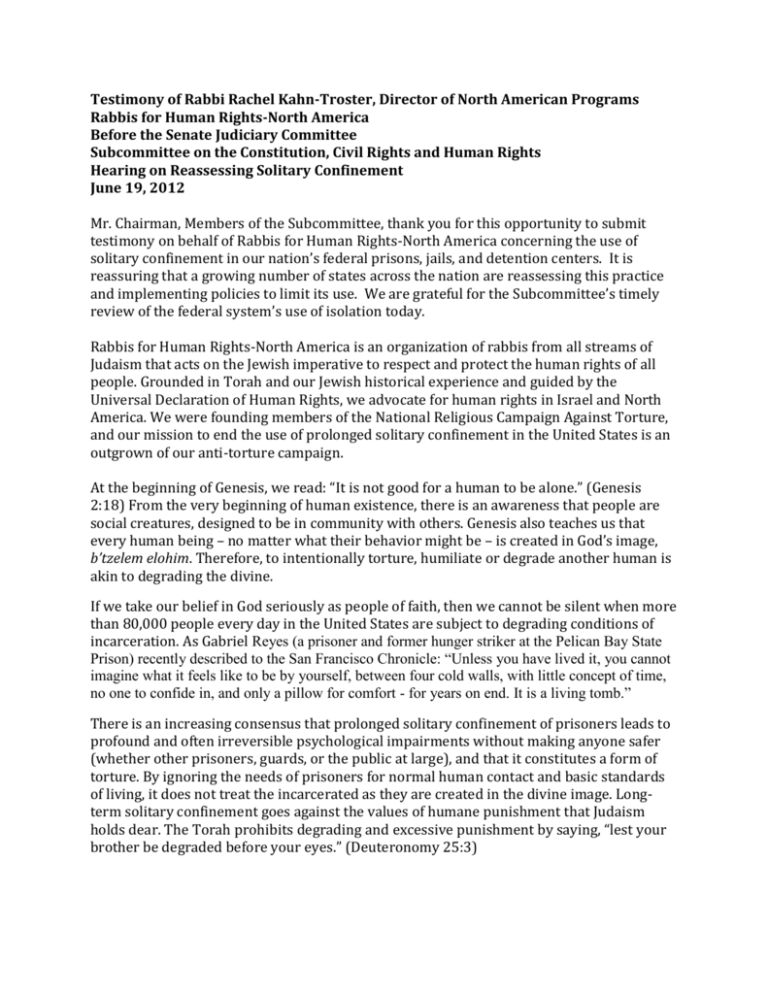
Testimony of Rabbi Rachel Kahn-Troster, Director of North American Programs Rabbis for Human Rights-North America Before the Senate Judiciary Committee Subcommittee on the Constitution, Civil Rights and Human Rights Hearing on Reassessing Solitary Confinement June 19, 2012 Mr. Chairman, Members of the Subcommittee, thank you for this opportunity to submit testimony on behalf of Rabbis for Human Rights-North America concerning the use of solitary confinement in our nation’s federal prisons, jails, and detention centers. It is reassuring that a growing number of states across the nation are reassessing this practice and implementing policies to limit its use. We are grateful for the Subcommittee’s timely review of the federal system’s use of isolation today. Rabbis for Human Rights-North America is an organization of rabbis from all streams of Judaism that acts on the Jewish imperative to respect and protect the human rights of all people. Grounded in Torah and our Jewish historical experience and guided by the Universal Declaration of Human Rights, we advocate for human rights in Israel and North America. We were founding members of the National Religious Campaign Against Torture, and our mission to end the use of prolonged solitary confinement in the United States is an outgrown of our anti-torture campaign. At the beginning of Genesis, we read: “It is not good for a human to be alone.” (Genesis 2:18) From the very beginning of human existence, there is an awareness that people are social creatures, designed to be in community with others. Genesis also teaches us that every human being – no matter what their behavior might be – is created in God’s image, b’tzelem elohim. Therefore, to intentionally torture, humiliate or degrade another human is akin to degrading the divine. If we take our belief in God seriously as people of faith, then we cannot be silent when more than 80,000 people every day in the United States are subject to degrading conditions of incarceration. As Gabriel Reyes (a prisoner and former hunger striker at the Pelican Bay State Prison) recently described to the San Francisco Chronicle: “Unless you have lived it, you cannot imagine what it feels like to be by yourself, between four cold walls, with little concept of time, no one to confide in, and only a pillow for comfort - for years on end. It is a living tomb.” There is an increasing consensus that prolonged solitary confinement of prisoners leads to profound and often irreversible psychological impairments without making anyone safer (whether other prisoners, guards, or the public at large), and that it constitutes a form of torture. By ignoring the needs of prisoners for normal human contact and basic standards of living, it does not treat the incarcerated as they are created in the divine image. Longterm solitary confinement goes against the values of humane punishment that Judaism holds dear. The Torah prohibits degrading and excessive punishment by saying, “lest your brother be degraded before your eyes.” (Deuteronomy 25:3) Jewish tradition also emphasizes the need for human companionship. Commenting on the death of a man who had outlived his friends and study partners, the rabbis of the Talmud commented: “Either companionship or death.” (Babylonian Talmud Ta'anit 23a) Many of those held in prolonged solitary confinement have been deprived of community for months or even years. The impact on their physical and mental health may be irreversible. We believe that the moral voice of rabbis is critical in ending this endemic violation of human rights. Rabbis play a crucial role in teaching our communities about the importance of restorative justice, rather than punitive and damaging punishment. In our system of justice, being sent to prison is the punishment, not horrific conditions while in prison, of which isolation is the extreme end. As a nation, our goal for those incarcerated should be rehabilitation and repentance. Jewish tradition teaches us that the gates of repentance are always open, and that God suffers over the pain of sinners and righteous alike. Mr. Chairman, Members of the Subcommittee, Rabbis for Human Rights-North America believes strongly that the United States should do everything it can to reverse our nation’s harmful and expensive reliance on solitary confinement. We have a moral obligation to uphold the dignity and the mental health of those currently incarcerated. To that end, we would strongly support your leadership in sponsoring legislation that would limit the use and length of solitary confinement. We implore you to immediately take steps to end the use of prolonged solitary confinement. Your hearing today is a very important effort in doing that, and we thank you for the opportunity to contribute to it.
